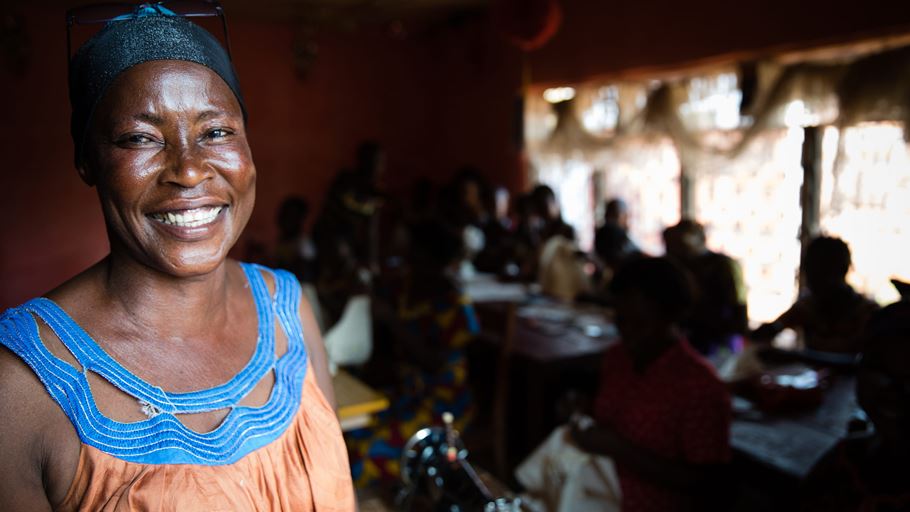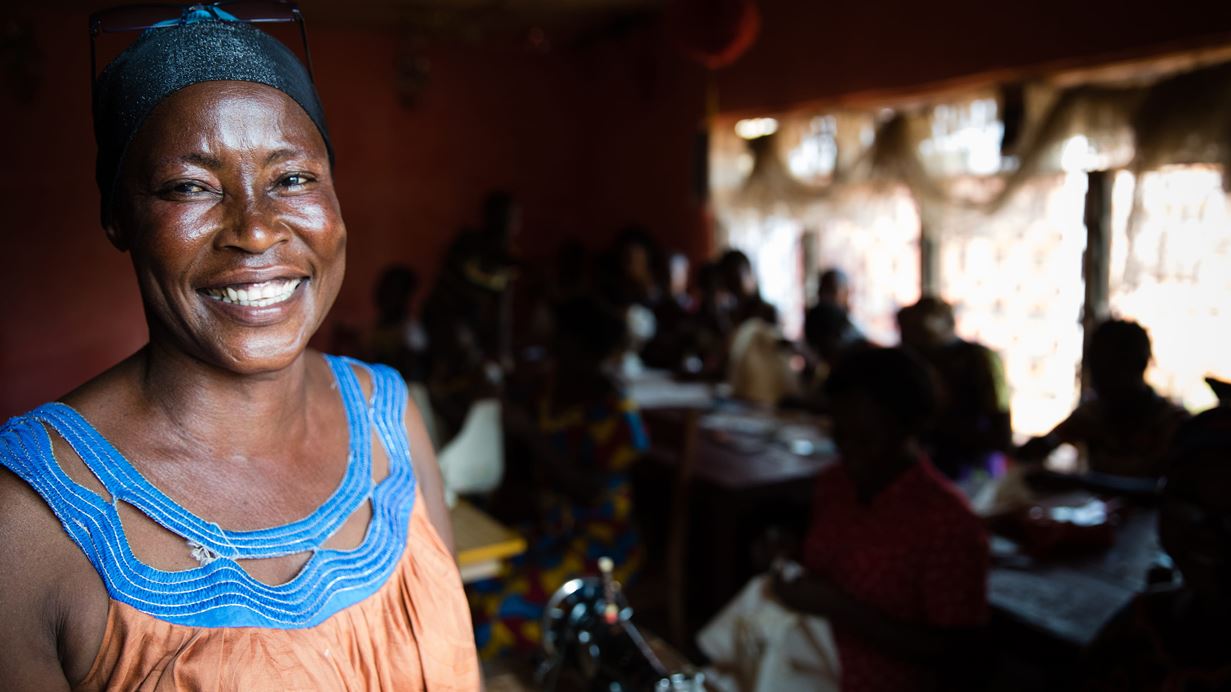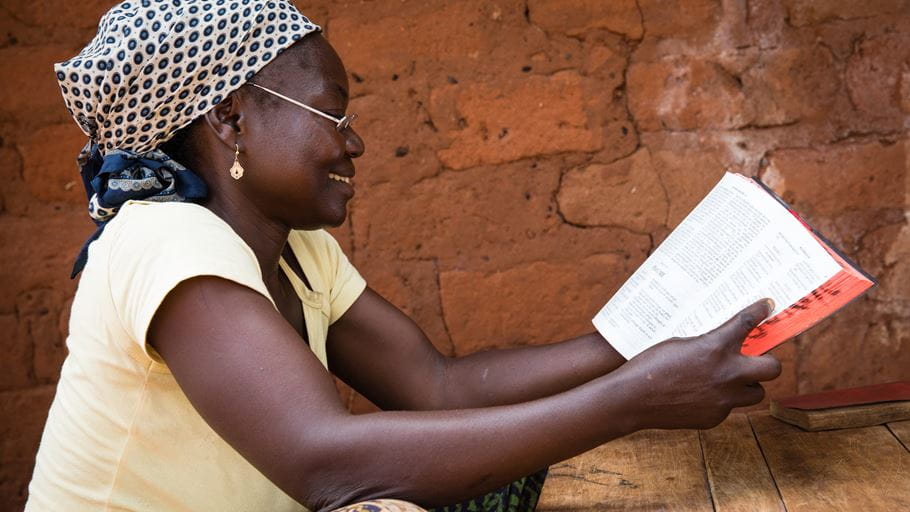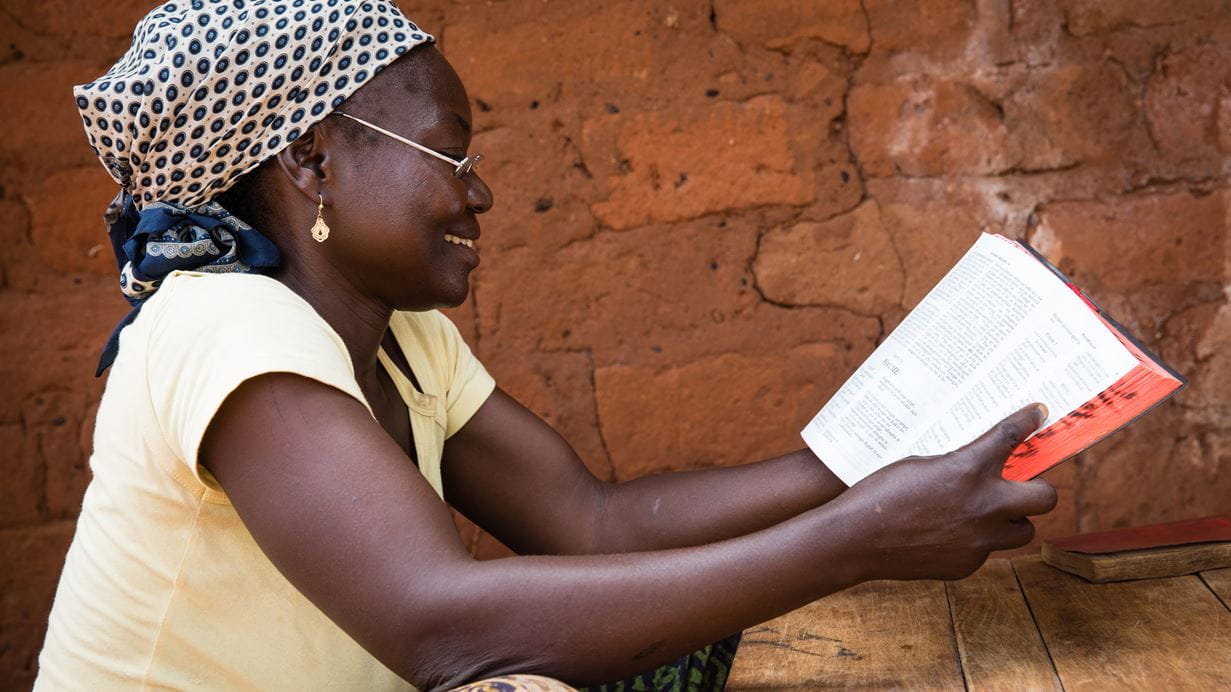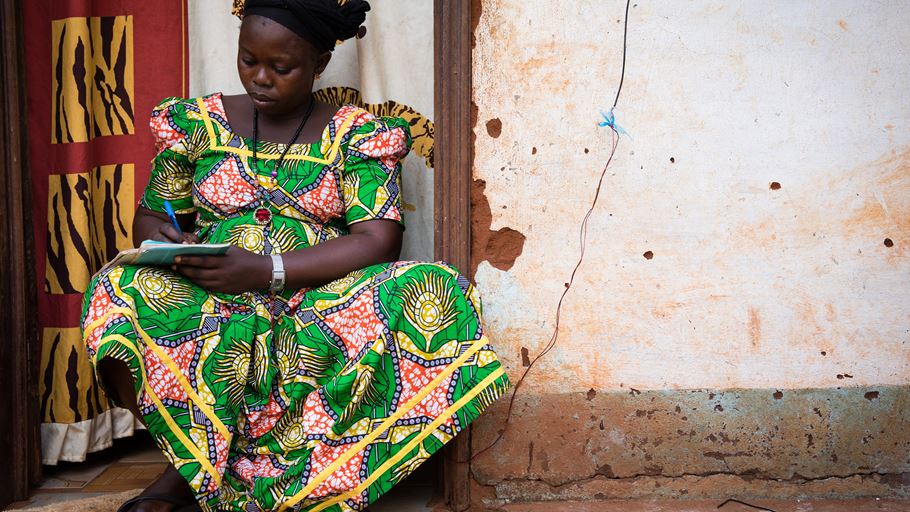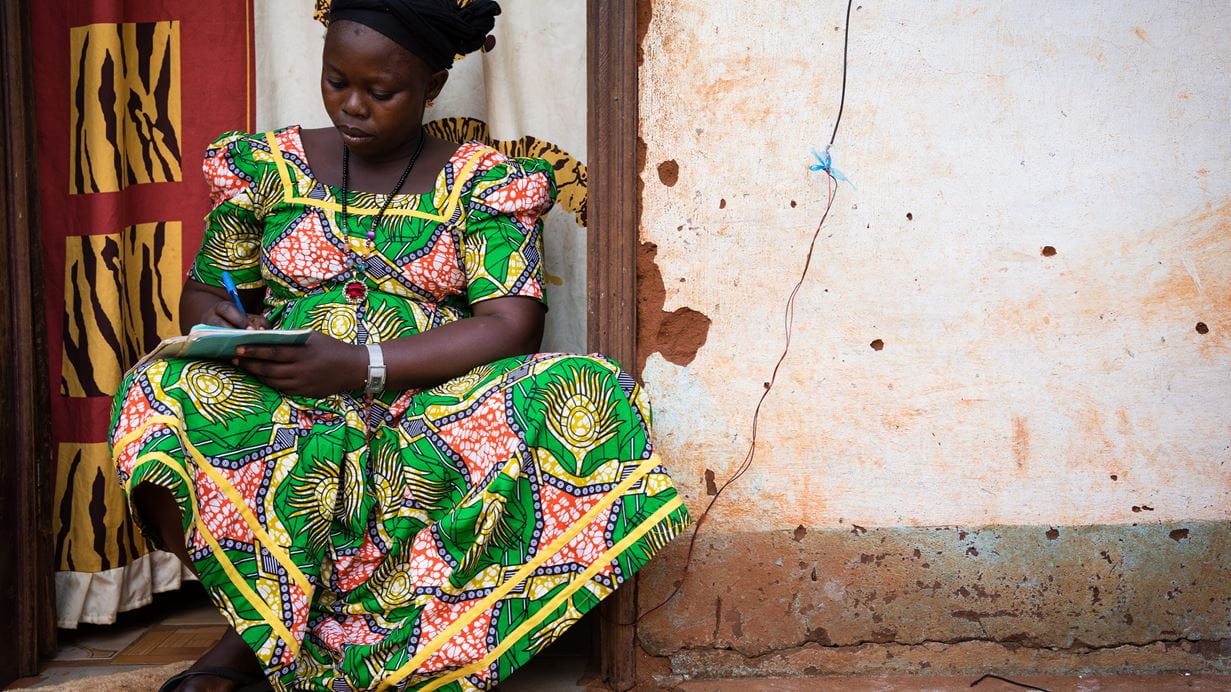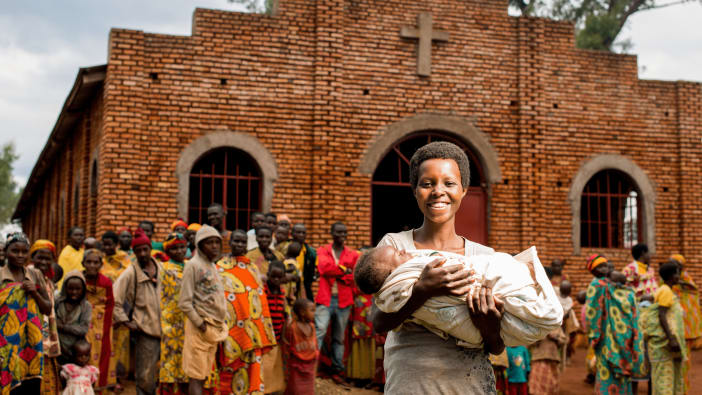Partnerships and funding
Tearfund is a member of the NGO Forum Coordination Committee, where we have the opportunity to interact with the international NGO community and exchange learning and best practices.
We are also a member of the following United Nations humanitarian clusters: Sexual and Gender-based Violence (SGBV), Food Security and Livelihoods (FSL) and Water, Sanitation and Hygiene (WASH). This helps us to coordinate with local organisations as well as the government, and to participate in CAR’s humanitarian response programming.
Tearfund has worked in consortium with World Vision International, CORDAID, and International Medical Corps (IMC) for joint humanitarian responses throughout CAR. With our local partners, we have also worked with the National Alliance for Bible Translation (ACTBA) and the Central African Evangelical Alliance.
Tearfund works closely with host government institutions in CAR, including the National Water Agency (ANEA), the Directorate of Literacy, and the Ministries of Agriculture, Women and Social Welfare
Tearfund’s programmes in CAR have received funding from:
USAID/Bureau of Humanitarian Aid funded a project focused on restoring the livelihoods and health of people affected by conflict. Tearfund provided WASH and food security assistance.
European Commission’s Humanitarian Aid Office (ECHO) funded WASH work by Tearfund which focused on health centres across the Bambari area – providing clean water, hygiene kits and access to latrines and shower blocks for those at the health centres and the hospital.
The UK Government’s Foreign and Commonwealth Development Office (FCDO) funded a three-year project empowering women through adult literacy, vocational and skills training and the establishment of self-help groups. This enabled more than 10,000 women to be economically empowered.
Common Humanitarian Fund (CHF) funded our emergency WASH response for internally displaced people in Boda.
Irish Aid funded a project focused on restoring the livelihoods of crisis-affected people. This involved working with church leaders and volunteers to provide cooking demonstrations, community mobilisation and the provision of seeds and tools to encourage self-sufficiency.
Food and Agriculture Organisation (FAO) funded the provision of emergency food assistance to households affected by conflict in Lobaye.
The Dutch Ministry of Foreign Affairs (BUZA) funded an integrated WASH and food security project to improve the living conditions of conflict-affected communities.




